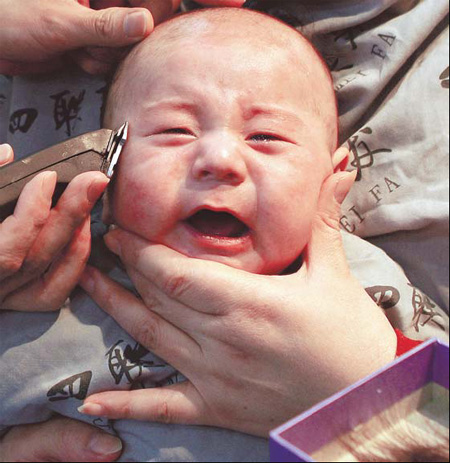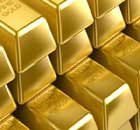Society
Barbers cut in rush for good luck
(China Daily)
Updated: 2010-03-18 08:01
 |
Large Medium Small |
|
 Four-month-old Wang Jiacheng gets a haircut in Beijing on Wednesday, the second day of the second month of the lunar calendar. Millions across the country got their first trims of the Lunar New Year on the day, which is considered auspicious. [Photo by Zou Hong / China Daily] |
BEIJING: Just a month after the Chinese Lunar New Year celebrations began, another tradition comes along: to have a haircut on the second day of the second month, or Er Yue Er, which is to hope for good luck for the entire year.
As a result of this widespread belief, China's barbershops saw one of their busiest days of the year on Wednesday, when Er Yue Er, also known as Longtaitou (dragon raises head) Day, fell on the lunar calendar this year.
Many Chinese subscribe to the superstition that getting a haircut when the "dragon also raises its head" means they will have a vigorous start to the new year. If a person has a haircut during the first month of the lunar year, however, it is assumed his maternal uncle will die.
Finding themselves in high demand, barbershops stay open almost 18 hours a day in the pre-Lunar New Year rush for haircuts that lasts for at least two weeks.
While women like to spruce up for the holiday, even men with short hair like to get a trim before the new year begins, lest their hair grows too long before their next haircut, scheduled for the second day of the second lunar month.
A Chinese legend holds that a poor barber loved his uncle dearly, but could not afford a decent new year's gift for him. So he gave him a nice haircut that made the old man look much younger than his years. His uncle said it was the best gift he had ever received and wished to have his hair cut by his nephew every year from then on.
After his uncle died, the barber missed him very much and cried every new year. Over the years, his "thinking of his uncle" (si jiu) was interpreted as "death of uncle", because their pronunciations are almost the same in Chinese.
According to Cao Baoming, vice-president of the China Society for the Study of Folk Literature and Art, the lucky haircut tradition comes from the Chinese's worship of the dragon, which is believed to symbolize luck.
"The lucky tradition, which goes back thousands of years, reflects people's wish to have a happy life," he said.
XINHUA AND CHINA DAILY







